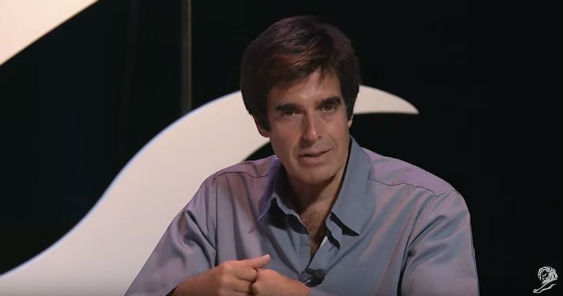GLOBAL, NOVEMBER 21, 2011: Fresh from her talk at the first Festival of Media Asia in Singapore, Universal McCann Global CEO Jacki Kelley sheds light on some questions that most marketers and brand-builders are asking in this adobo exclusive. From shifting trends on media consumption to the rise – and fall – of some of the world’s most important economies, Kelley gives a tell-all on what we may expect in the ever-evolving world of media.
What are the key points that your session tackled?
My presentation focused on two things.
First is the impact of TOTAL MEDIATION. Think about it – there is no aspect of our lives that is not impacted by media. The consumers we seek to influence – and each of us – are living fully mediated lives. The IPG Media Lab has done significant work on understanding the implications of this and I will share these findings.
Second, I shared my thoughts on what agencies and clients must do to adapt to these changes and evolve to take advantage of the opportunity.
Any interesting data that you can share?
Scaled adoption of devices is happening much faster than any other time in history. In fact, it took 38 years for Telephone adoption to reach 50MM whereas, it has taken the iPad less than 2 years!
In this age of societal attention deficit and massive media fragmentation, In order to compete for consumer attention in this complex media environment, brands must develop immersive, empathetic communications to fully engage their audience.
Ads superimposed on top of video content both on TV and on PCs, had significantly higher attention levels than ad breaks. In fact, when we looked at consumers time spent on ads at full attnetion, we say a 13% increase when the ads are an overlay (50%) vs. in a traditional commercial pod (37%).
What important shifts are taking place in Asia-Pacific today?
The GDP growth rate for APAC, although lower than the growth of emerging markets, continues to be robust. Advertising revenues will continue to grow in the next 5 years with APAC growing faster than the global trend.
It is a challenge to discuss Asia-Pacific from a regional perspective because each country has a very unique marketing landscape. Instead, let me mention a few things that stand out as important shifts by country.
TV remains the dominant medium but China is experiencing a rise in magazines, radio and digital. These shifts are due to the growth of the luxury market which fuels the growth in the magazine industry, increased car ownership and time spent in cars driving growth of radio and the Online properties have vey limited competition from foreign entities.
Japan – Still A $32bn market, Japan was the second biggest advertising Market in 2011 but is forecasted to become third (after China) in 2012.Indonesia is one to watch! With the staggering growth in the young middle class population, the duple digit forecasted GDP growth and a 90% literacy rate we are keeping our eyes on Indonesia knowing there is tremendous opportunity for our clients. Internet advertising in Indonesia has become the second-largest media platform after TV in major cities, surpassing newspapers and radio.
Any pressing issues that need to be addressed or will impact on revenues and business potential significantly?
Our central operating process works around the principle that our compensation agreements are centered on our clients’ business growth. We are willing to assume a higher degree of risk and will align our efforts with our client’s desired business outcomes.
How has this year been performance-wise?
We are thrilled to be ending the year with the great news of winning the ExxonMobil global consolidated media business. After 13 months, the client reached their decision just two weeks ago.
What is your outlook for 2012?
Global advertising revenues are forecasted to grow with Latin America and APAC growing the fastest.
As an example, below is our outlook on China:
There is an intense competition among foreign and domestic brands to position themselves in the top of mind of the rising Chinese middle-class embracing Western lifestyle.
Despite growth slowing down from general market Inflation pressure, the media industry is expected to sustain double-digit growth over the next five years. Although the ad spend per capita is four times lower than global average ($20 v. $80), China is already the third biggest advertising market, expected to become second (outranking Japan, as early as 2012.
TV is the undisputed medium with a market share at nearly 50% and growing, and remains largely controlled by the government. It‘s the only really national medium.
Foreign internet companies have been able to make limited inroads in the Chinese market. Domestic players have secure strong positions. Google, for instance, is lagging behind the Chinese search champion, Baidu.
Technological advancements OOH, particularly digital, along with urbanization and new sources of inventory are driving OOH market share. With little legacy issues, DOOH is moving faster than in many developed markets.
What are you most excited about in terms of business, technology and the industry?
Marketing has always been a balance of effectiveness and efficiency. Technology allows us to improve both. It gives us respondent-level signals from consumers about what they pay attention to and find valuable. This allows us to make better marketing investment decisions and gain insights around customer behavior and attitudes. We can then use technology to create just the right set of user experiences that will convince shoppers to turn into customers and customers into brand advocates.
At UM, our drive for performance-based compensation is dependent on technology to enable a better ecosystem–one that will reward media owners that attract valuable audiences, drive better return on marketing for brands and create more relevant and engaging experiences for consumers. Technology is the foundation to make major changes to how we build plans and execute them.
For more on the Festival of Media Asia, visit www.festivalofmedia.com/asia.




